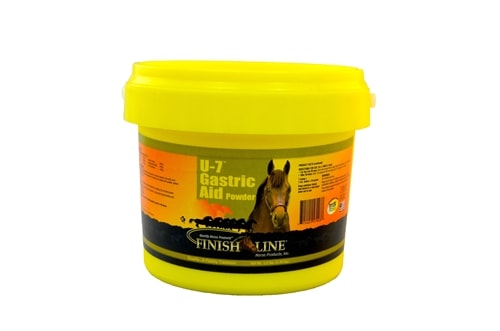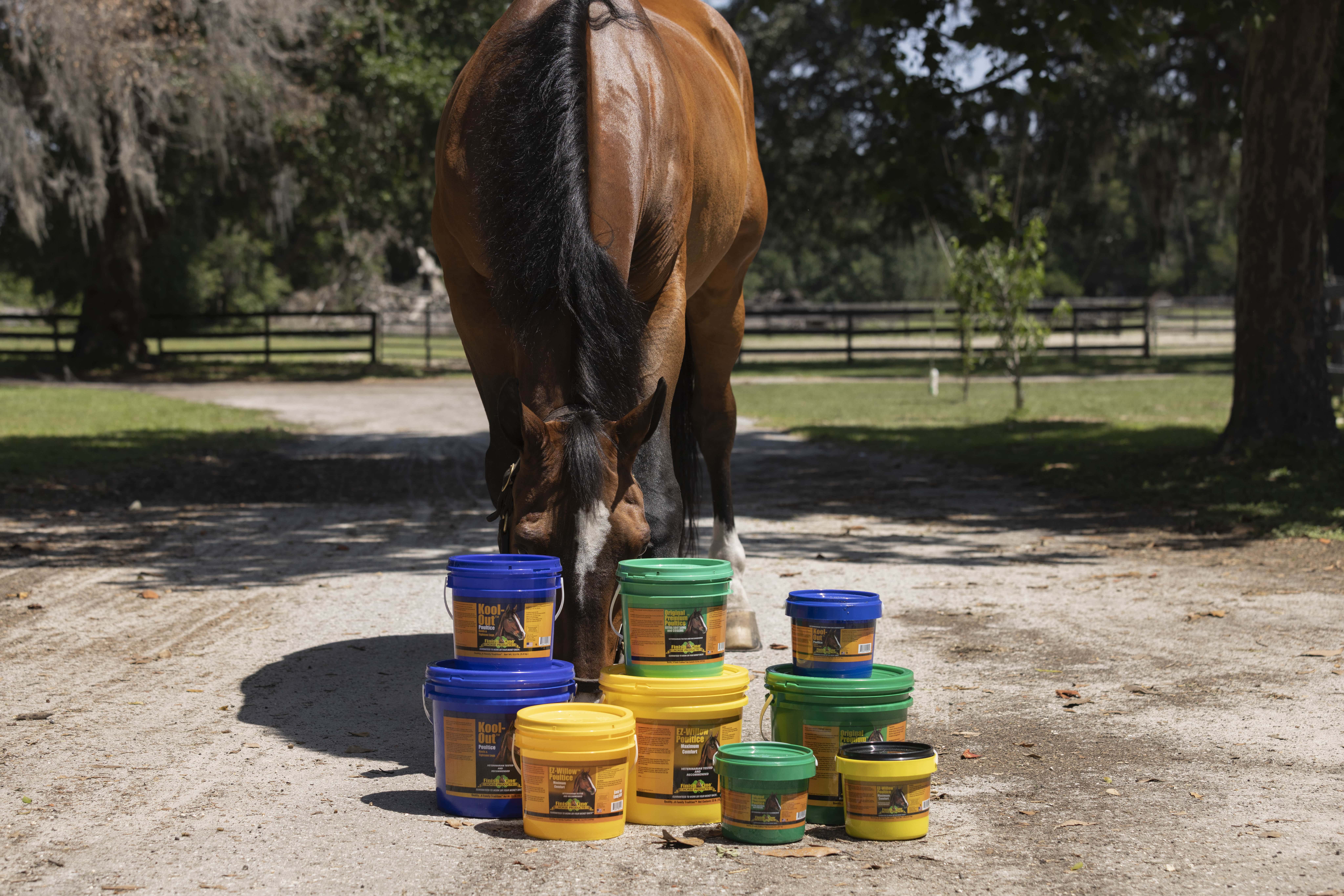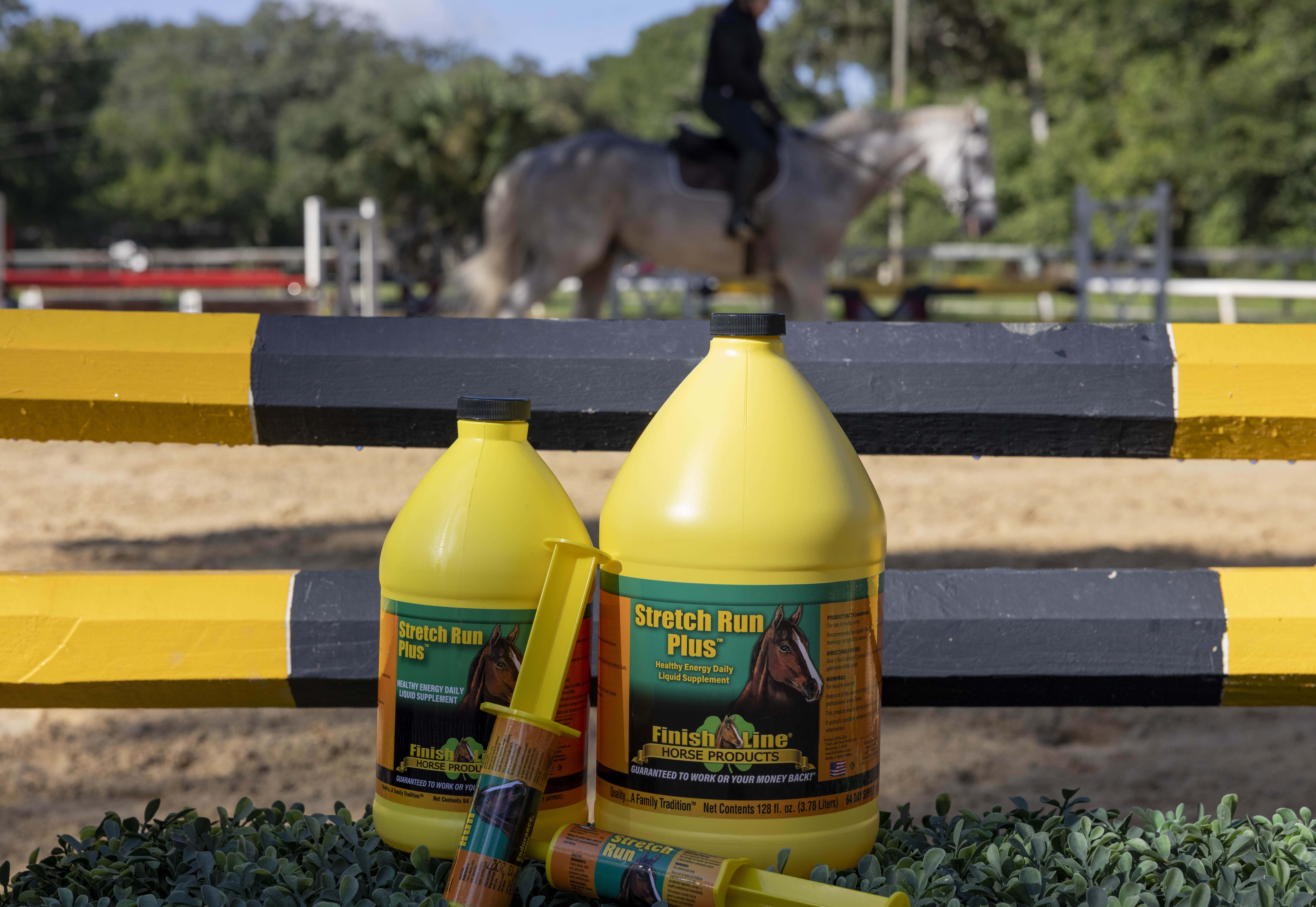Colic can seriously affect the health and well-being of a horse, no matter its age. In fact, the abdominal pain remains a major cause of sickness in equines, affecting about 10 percent of all horses at least once in the lifetimes. It is essential for horse owners not only to recognize early signs of colic (because the sooner a horse is treated, the better its chance of of recovery), but to take steps to help prevent it.
Check out these tips to steer clear of colic in horses:
1. Keep a routine: It’s important for horses to maintain a daily routine – timing and consistency are cornerstones of avoiding gastrointestinal problems. This is because the enzyme production in a horse’s stomach is time-dependent. Enzymes are released based on the animal’s internal clock, and food needs to be present during gastric acid formation, otherwise the acid may cause damage to the stomach lining and trigger other problems. Feeding your horse at the same time of day is considered the best practice.
2. Deworm regularly: Internal parasites can thrive in pastures where your horse grazes, plays and exercises, and it’s no surprise that a stomach full of parasites can cause bellyaches. Get rid of the worms by establishing a deworming program with your veterinarian. Consider implementing a 5-day double worming program to eliminate encysted small strongyles. Also, all horses should be dewormed with Quest Plus for tape worms once a year.
Unfortunately, deworming is not a one-size-fits-all solution. An effective program hinges on a number of factors that can vary between horses, including age, location, season, travel amount, pasture load and other horses in the pasture. Plus, half of all horses have tape worms even though most mixed animal vets don’t know this.
To determine your horse’s deworming needs, have your vet perform a fecal exam to check for the presence of worm eggs. A fecal egg count reduction test should be performed every one to two years.
3. Float teeth: When teeth are left unattended, they form sharp points that can trigger ulcers in your horse’s mouth. Besides causing ulcers, if a horse’s chewing teeth do not have a flat surface, they cannot properly chew food, which in turn hinders the process of digestion. Call your vet to float your horse’s teeth. All horses of every age should have their teeth floated at least once a year. A simple test can go a long way.
4. Offer fresh water at all times: Although it may sound obvious, horses need clean, fresh, potable water at all times. While the stall should be equipped with at least one large automatic waterer or large bucket, make sure you clean and fill the water tub in the field too. To avoid fecal impaction, provide water above 50 degrees at all times.
5. If swapping feeds, do so gradually: If you’re switching from one feed to another, such as timothy to alfalfa, be sure to do it slowly. An abrupt shift in feed can lead to an upset stomach. For a smooth transition, mix the two feeds together for a week while gradually removing the old and increasing the new.
6. Spread out grazing schedules: Imitate natural grazing schedules by providing two or three smaller portions of feed throughout the day, rather than one single feeding that overloads the digestive tract.
7. Muck stalls frequently: Use manure forks and suitable buckets to clean out stalls. A filthy, unkempt stall encourages a habitable environment for bacteria and parasites. Also, harrow pastures to break up manure and help disrupt the parasitic life cycle.
All horse owners should check with their equine vets in their area to find out which drugs the parasites have become resistant to. For instance, in Florida, ivermectin is no longer effective due to resistance. Many back yard owners just get wormers from the feed stores.
What’s more, newly bought horses should be Power Packed dewormed. This is because worms can become logged at the mesenteric arteries, which reduces blood flow to the intestines, in turn causing the guts to twist. As unpleasant as it sounds, worms can remain lodged in the arteries for years before coming loose and traveling down to plug the mesenteric arteries.
8. Remove noxious weeds: Pull weeds and other indigestible substances from pasture grass, hay and bedding.
9. Use digestive supplements to promote healthy bacteria growth: The equine gastrointestinal system is complex and delicate in certain horses. That’s why Finish Line® developed U-7™ Gastric Aid with the specific aim of supporting a healthy stomach, intestine, cecum and colon.
All horse owners should check with an equine vet in their area to find out which drugs the parasites have become resistant to. In Florida, for example, ivermectin is no longer effective due to resistance. Many backyard owners can simply get wormers from the feed stores.








